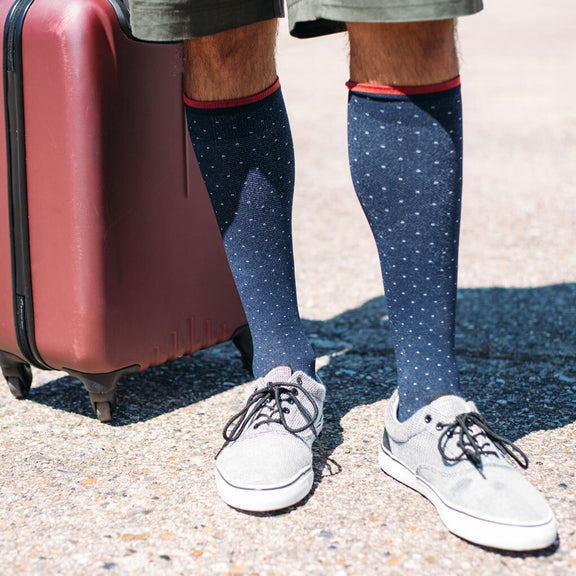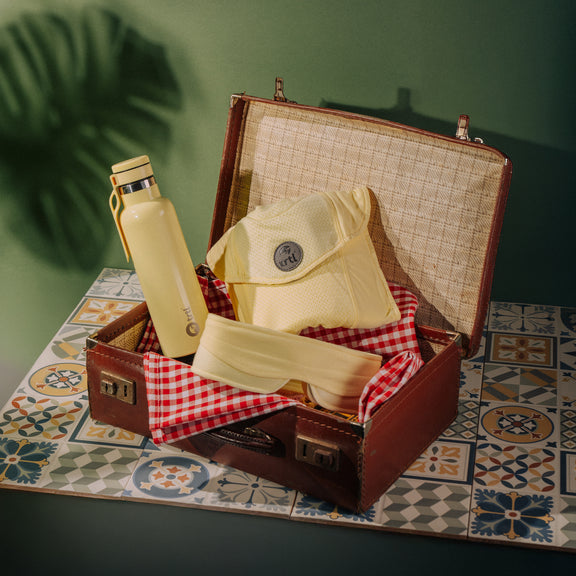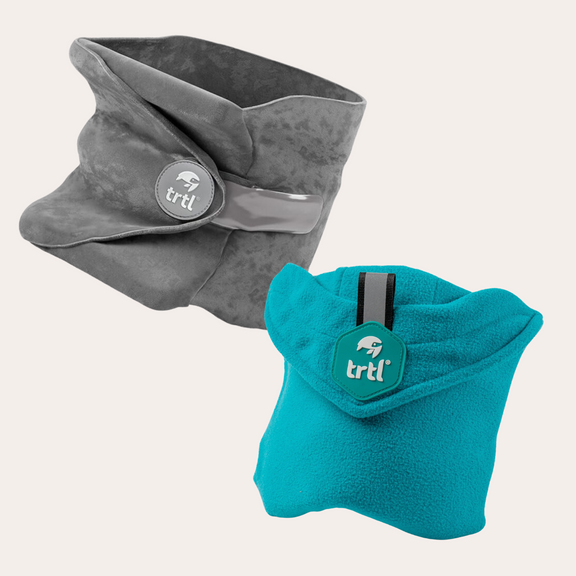When you’re planning a getaway, you’ll have a million and one things on your mind, like what you need to pack and how you can avoid jet lag. The last thing you want to be thinking about is what happens if your travel operator goes under.
But sadly, this is the reality for holidaymakers across the country, turning dream destinations into nightmare locations.
Luckily, by law, all UK travel companies must have an ATOL, which can be just the ticket to making sure your holiday continues like normal. In this Trtl blog, we’ll explore everything there is to know about ATOL.
What is ATOL protection?
The Air Travel Organiser’s License (ATOL) is managed by the Civil Aviation Authority (CAA) and is a financial protection scheme put in place to protect holidaymakers.
It’s a legal requirement for all UK companies selling package holidays to hold an ATOL. This means businesses contribute to a cash pot that provides financial protection for holidaying Brits if the company ceases trading before or during their trip.
ATOL protection doesn’t extend to businesses overseas, so it’s a benefit for holidaygoers who are from the UK.
When was ATOL protection introduced?
The first ATOL regulation requiring businesses to hold a license was introduced in the 1970s. The government took steps to protect consumers after various failings by travel companies left consumers stranded. Since then, new regulations have been put in place in 1995 and 2012 — with the exception of amendments made in 2020 for Covid-19.
These regulations set out who can advertise and sell flights in the UK, with the main two being:
- The operator of the aircraft
- An ATOL holder
Essentially, you must hold an ATOL to provide financial protection and support for customers should the worst happen.
What does ATOL protection cover?
ATOL only comes into force when the travel operator you’ve booked with stops trading — this doesn’t cover situations like cancelled flights!
ATOL cover means you’re protected if you book a holiday with a single travel firm — such as a package holiday — that includes:
- Flights and accommodation (including on a cruise)
- Flights and car hire
- Flights, accommodation and car hire
Say you’ve just touched down for your dream holiday, but you see that your travel operator has gone bust. If the holiday was ATOL-protected, it ensures people could finish their holidays, confident they’d be able to return and wouldn’t be stranded overseas. If you’ve booked a holiday and the operator goes bust before your trip begins, you’ll receive a full refund, providing the company has an ATOL certificate.
While uncommon, the scheme also can apply to some flight bookings; however, if they’re purchased directly from airlines, they usually aren’t covered.
How much does the scheme cost?
ATOL operates by charging travel companies a small fee of £2.50 per traveller, which then goes into a fund managed by the Air Travel Trust.
This fund is then used to repatriate, refund or reimburse travellers if their travel operator ceases trading while they’re abroad or before their holiday starts.
Are all trips ATOL protected?
If things go wrong while you’re on holiday, ATOL is a great safety net to ensure you can continue your trip with peace of mind. But it doesn’t apply to every holiday.
In the UK, all package holidays should be ATOL-protected. However, this doesn’t mean that all holidays are creditable. Always look for the ATOL logo before you book — all reputable sites and businesses will have this proudly displayed!
What is an ATOL certificate?
An ATOL certificate is proof for customers that the package holiday or flight they’ve booked is protected by ATOL.
It will tell you:
- Who’s covered
- What’s protected by ATOL
- Who is providing the protection (the travel business name and the ATOL number)
Once you’ve booked your trip, you should receive an ATOL certificate as soon as you pay any amount towards your holiday. Any time you make additional payments, you should receive an updated certificate from your travel operator.
How can you tell if a holiday is ATOL-protected?
There are two ways you’re able to tell if the holiday you want to book is ATOL-protected:
- Check for the ATOL logo on the company website or in brochures and advertisements. You can check the unique licence number with the Civil Aviation Authority to confirm the company's authenticity.
- Ask your tour operator directly if they’re ATOL protected and ask to see their licence number. You should receive your ATOL certificate from your operator when you book your holiday.
What is the difference between ATOL and ABTA?
While ATOL protects you against losing money from being stranded abroad and is a legal requirement for all UK travel operators, ABTA is a voluntary scheme.
Also known as the Association of British Travel Agents, ABTA offers financial protection for non-flight-based package holidays — think trains, cruises and car travel. If the company you’re travelling with goes bust, under the ABTA scheme, you’ll be entitled to a full refund or replacement of your holiday, including hotel and transport costs.
If a holiday is ATOL-protected, do you need travel insurance?
While ATOL protection covers you if your travel company goes out of business, it won’t be able to help with lots of other things that can go wrong, like lost luggage or getting ill or injured abroad.
Because of this, it’s also a good idea to take out travel insurance to make sure you’re covered for absolutely everything — from stolen electronics to cancelled flights!
Get set with Trtl Travel
Making sure your trip is ATOL-protected can be the difference between a peaceful escape and paying extra to get home. That’s why it’s important to search for the ATOL certificate when booking your holiday.
It’s also important that you remain in complete comfort wherever you are, and that’s why our travel pillows will leave you feeling refreshed at your destination, whether it’s a quick trip of a few hours or a long-haul flight.
To find out more helpful tips and tricks for all things flying, check out our blog page.




















